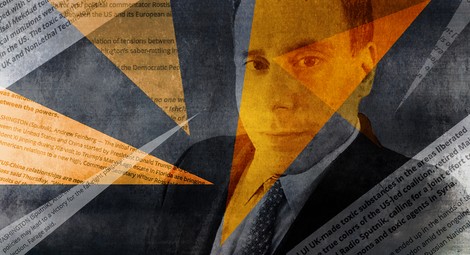Your podcast discovery platform
Curious minds select the most fascinating podcasts from around the world. Discover hand-piqd audio recommendations on your favorite topics.

piqer for: Globalization and politics Global finds
I am an Australian freelance journalist focussing on conflicts, politics, and warzones around the world. I have been working as a journalist for over 5 years, having reported from Australia, Germany, China, Egypt, Palestine, and Ukraine. I am especially interested in the way that new technologies are being used in conflict zones in unexpected and often disturbing ways. During my time working as a journalist, I also co-founded open-source war reporting site Conflict News.
My Life At A Russian Propaganda Network
Russia, in many ways, is a medium power punching far above its weight. It is only the 12th largest economy in the world and has a rapidly shrinking population. Despite this, its power is amplified by several factors. The most obvious of these is the country's military, generally regarded as the second most powerful in the world. But the thing that the country excels at more than any other on Earth is propaganda.
I first became aware of the pervasiveness of Russian propaganda during in 2013 while reporting on the Euromaidan Revolution in Ukraine and the eventual Russian invasion of the country. What surprised me was not that Russia's media presented a one-sided and poorly researched view of the conflict, but rather that these 'alternative facts' found a shocking large audience, especially among the political fringes in Europe.
The main English-speaking faces of this propaganda apparatus are Russia Today (RT) and Sputnik. Vastly more sophisticated than their Soviet forebears, these networks push a message of doubt and distrust. Primarily, they want to you believe not that Russia is necessarily 'good' but rather that every nation is equally bad.
Boiled down, the message is: “Put your trust in the world as you see it, not as the mainstream media or your countries' leaders tell it.”
This message was brought to the US during the 2016 Presidential campaign, in the form of Donald Trump, a candidate who railed against the mainstream and was openly backed by Russia's propaganda apparatus. The long-term effects of his election are plain to see, and even if his time in power is short, the damage it has done to American democracy is significant.
Andrew Feinberg's tell-all testimonial is a unique insight into what it is like to work for this propaganda and provides an interesting and valuable look at both how a network like Sputnik distorts the news and its motives.
